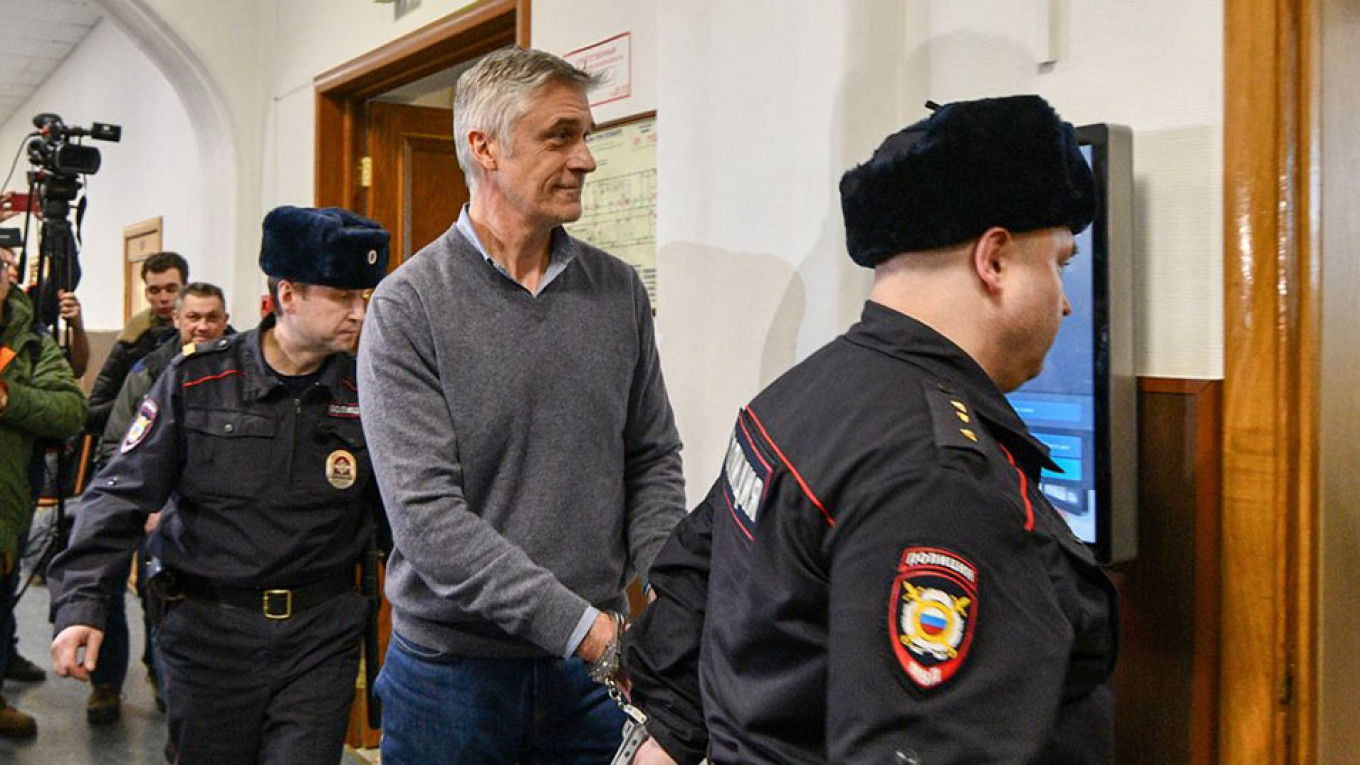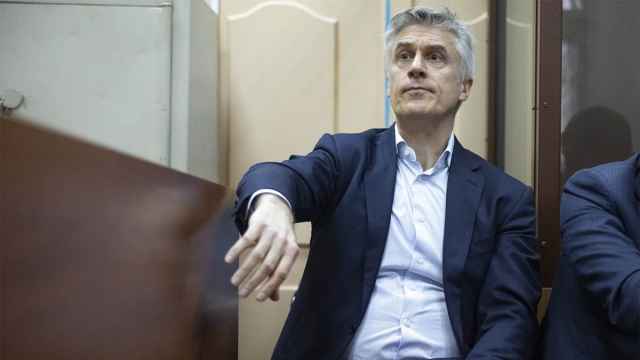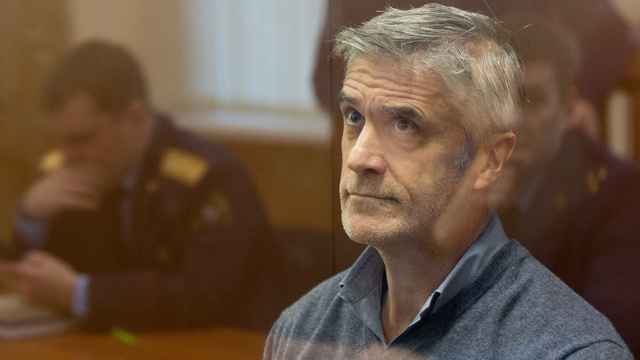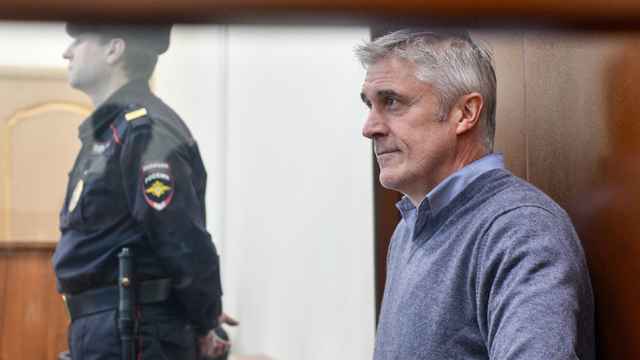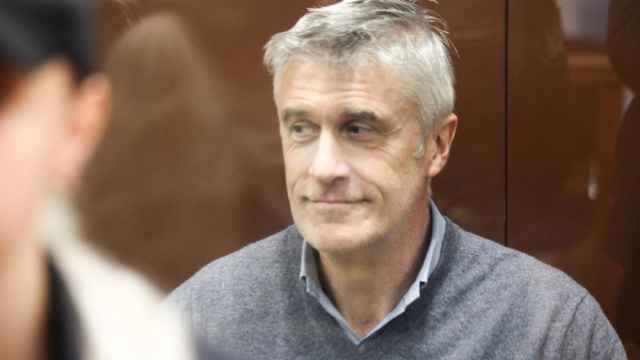The arrest of Michael Calvey on Feb. 14 on charges of “large-scale embezzlement” sent shockwaves through Russia’s investment community.
One of the best known, most successful and personally well-liked figures in the Russia investment community, Calvey has been both a savvy investor and at pains to keep his head down. He never comments on politics and is known as a straight shooter.
The success of his fund Barings Vostok Capital Partners (BVCP) relies entirely on smart calls and it has made a string of “home runs,” as U.S. citizen Calvey has told me in a string of interviews over the years.
The news of Calvey’s arrest quickly swept the markets in London and then New York. However, the consensus among fund managers is that it is “business as usual” in the world of Russian equity.
Calvey is in jail accused of illegally under-pricing shares in the regional retail bank Orient Express Bank (OEB, aka Vostochniy Bank), in which Baring holds a 52.5 percent stake. The bank ran into trouble in 2015 following the heavy devaluation of the ruble and was recapitalised by the shareholders in 2018. BVCP is accused of illegally making $37 million from the pricing.
There are over 100,000 businessmen in jail on trumped up charges connected to business disputes rather than any illegal activity.
An argument sprung up between Barings and its Russian partners, Artem Avetisyan and Sherzod Yusupov, minority shareholders in Vostochniy, over valuations and stakes, as the recapitalisation came with a new issue of shares — now the subject of an arbitration case in London.
All this is a pretty normal part of business, as arguments often come out of a rescue from a difficult position. What is unusual is that a court issues an arrest warrant and a leading fund manager and his team get arrested. At least it is unusual elsewhere, but it is par for the course in Russia.
The Presidential Ombudsman for Business Boris Titov told bne IntelliNews in an interview that he believes there are over 100,000 businessmen in jail on trumped up charges connected to business disputes rather than any illegal activity.
Investors are now waiting to see what will happen next. There are two options. Either the Kremlin steps in and quashes the case (in some face-saving way, as the government pretends it can’t simply order a court to do anything). Or Calvey remains in jail and loses control of OEB.
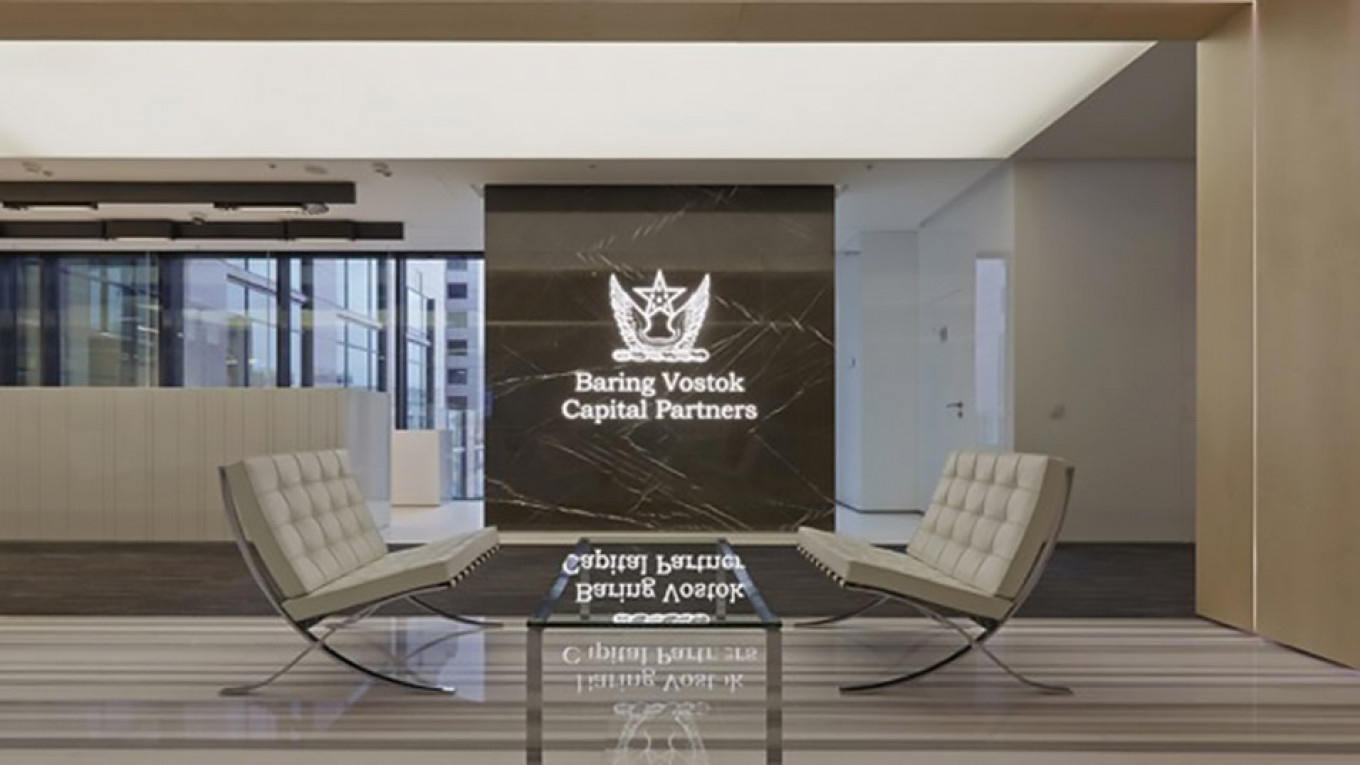
If Calvey were Russian he could simply buy his way out of jail, although now he is in pre-trial detention that would be very expensive. But foreigners, especially ones that have staked their reputation on being clean, can’t do that and that is the vulnerability all foreigners working in Russia have when facing off against ruthless Russian partners.
Commentators were quick to dub the arrest as a Browder 2.0, in reference to former Hermitage Capital Management fund manager Bill Browder, who fell foul of the Kremlin and had his visa revoked.
Since the death of Hermitage’s lawyer Sergei Magnitsky, Browder has campaigned tirelessly against the Kremlin, sponsoring the Magnitsky Act that can be used by governments to punish corrupt Russian officials. In his most recent remarks, just days before Calvey’s arrest, Browder testified to the UK Foreign Select Committee claiming it was impossible to do business in Russia without being shaken down because it is a fundamentally corrupt country.
Does Calvey’s arrest matter? Yes and no. It is very unlikely that Calvey and his partners are guilty as charged. Apart from anything else the amount of money they are accused of stealing — $7 million each if shared between five people — is laughably little.
It is hard to see how any more damage could be done to Russia’s investment case following, but not limited to, the Browder affair or the fate of Yukos owner Mikhail Khodorkovsky.
The Calvey affair will clearly give Russia’s image yet another bloody nose, but its nose was already bleeding. Russian President Vladimir Putin will inevitably be blamed personally and the government will be accused of trying to grab more banking assets, just as it was after taking over the troubled Garden Ring banks in the autumn of 2017.
But while the government is almost certainly not directly responsible, it is responsible indirectly given its failure to build institutions, protect property rights and establish an independent judiciary.
The prospects for a quashing of the case are made worse as the Kremlin seems to have given up hope of attracting significant western investment. It knows that bond investors and big firms like German engineering firm Siemens or the U.S. carmakers will come anyway because of Russia’s strong macro fundamentals and its 147 million-strong consumer market — by far the biggest in Europe.
Equity investors? They are not really that important to Russia’s development. It is noticeable that despite the extensive reforms in the financial sector there are still no domestic institutional investors to speak of — a gaping hole in the financial edifice. The Kremlin has already put all its effort into wooing Asian and Arab investors, who care less about corporate governance and don't attach strings or sanctions to their investment dollars.
Dedicated foreign-based Russia equity investors will probably not pull out if Calvey stays in jail. The outcome would probably see some of BVCP’s clients redeem their investments; Browder’s Hermitage Capital Management, once the largest fund in Russia, was effectively destroyed by Browder’s problems.
Investing in Russian equity has always been a rollercoaster ride. Another famous fund manager (who doesn't like to be quoted) quipped that Russia’s equity market is always the best performing in the world — or the worst.
It is hard to see how any more damage could be done to Russia’s investment case following, but not limited to, the Browder affair or the fate of Yukos owner Mikhail Khodorkovsky. But there is so little being invested already that the blip caused by the Calvey affair probably won’t be enough to move the needle.
Russia’s equities already trade on a special “Russia discount” that comes on top of the regular emerging markets discount, to account for problems like the political risk and poor corporate governance. All Calvey’s arrest says is that Russia is a very risky place to invest and things can go badly wrong, no matter how hard you try to keep your nose clean. But we knew that already.
A Message from The Moscow Times:
Dear readers,
We are facing unprecedented challenges. Russia's Prosecutor General's Office has designated The Moscow Times as an "undesirable" organization, criminalizing our work and putting our staff at risk of prosecution. This follows our earlier unjust labeling as a "foreign agent."
These actions are direct attempts to silence independent journalism in Russia. The authorities claim our work "discredits the decisions of the Russian leadership." We see things differently: we strive to provide accurate, unbiased reporting on Russia.
We, the journalists of The Moscow Times, refuse to be silenced. But to continue our work, we need your help.
Your support, no matter how small, makes a world of difference. If you can, please support us monthly starting from just $2. It's quick to set up, and every contribution makes a significant impact.
By supporting The Moscow Times, you're defending open, independent journalism in the face of repression. Thank you for standing with us.
Remind me later.



